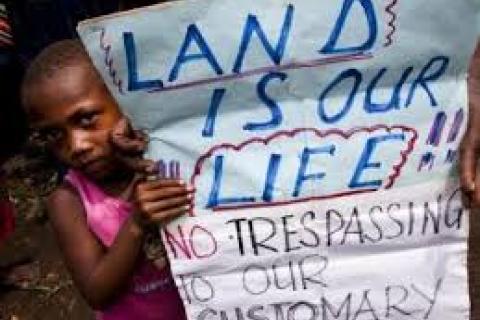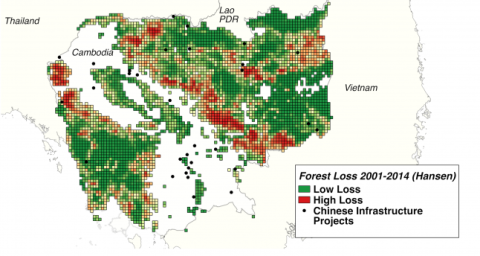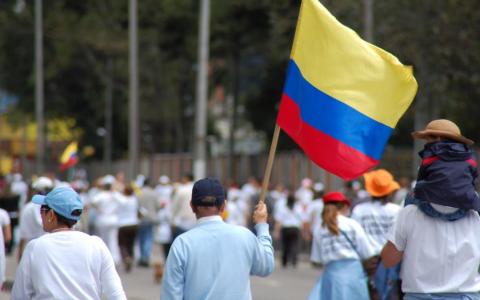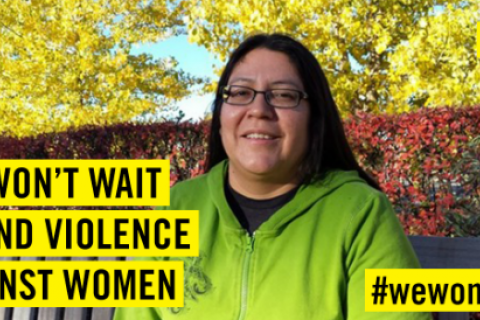Discover hidden stories and unheard voices on land governance issues from around the world. This is where the Land Portal community shares activities, experiences, challenges and successes.
 Follow our
Follow our
Sustainable Development Goals
Blog Series!
Interested in land corruption?
Follow our Land & Corruption Blog Series
for in-depth perspectives from the experts.
Issues
Geographical focus
By Marian Amissah-Ocran
First, Maame Kraba was diagnosed with HIV. Shortly thereafter, her husband died of the disease. For Maame, a young mother of two children living in Western Region, Ghana, her husband’s death marked an abrupt change in her family’s circumstances, one that would put her rights to land in jeopardy.
The Rethinking Expropriation Law initiative hosted a Conference on Compensation for Expropriation in Cape Town, South Africa on December 7-9, 2016. The final session of the Conference took place on December 9 and aimed at discussing the development of a protocol on fair compensation.
For the final session in Cape Town, scholars, judges, activists, and government officials from around the world sat together to provide input on what guidance and principles should be included in the protocol on fair compensation.
Despite the fact that land is intrinsically fixed in space, a new transnational market for land is born. Indeed, data from the Land Matrix suggests that in the last 16 years 77.5 million hectares of land – a surface slightly smaller than the entire Mozambique – have been transferred to international investors or are currently under negotiation. More than 140 countries are involved in this international market for land either as investor country, or as target country, or both.
Everyone was energised by the trek of 29 women from 22 African countries up and down Kilimanjaro this month to raise awareness of women’s land rights, producing a charter of 15 demands on how to protect and enhance these rights. A powerful statement and great mobilising action.
By Barbara Fraser, Freelance Journalist for the Center for International Forestry Research (CIFOR)
By Paul van der Molen, emeritus professor, ITC, University of Twente
From November 28 to December 23, 2016, Land Portal hosted a successful Land Debate on land valuation and fair compensation. The debate focused on the question of what is fair compensation for land in cases of land tenure changes (e.g. expropriations and voluntary land transfers), and what measures are sufficient to ensure the livelihoods of affected landholders are restored.
Conservationists and environmental advocacy groups have warned that the nature, pace and scale of Chinese-funded infrastructure projects in the developing world may lead to unintended environmental consequences, especially in so-called “ecological hotspots.” Until now, there has been no systematic, large-scale evidence that confronts the causal claim that Chinese-funded development projects ha
Since 2013, groups have been using TIMBY to document issues such as land tenure, environmental conservation and corruption. We are excited that TIMBY is helping elevate the voices of communities in decision-making about their land; it’s a first step in creating equitable land rights discussions both locally and globally. But we’ve noticed that TIMBY isn’t always being used in an equal and fair way with respect to gender: the reporters in early TIMBY projects were almost all men.
Until now, a comprehensive study of national-level expropriation, compensation, and resettlement procedures in 50 countries across has not been conducted. My PhD research project, facilitated by the University of Groningen Faculty of Law, aims to bridge this gap by providing a broad comparative analysis of nation legal frameworks in 50 countries across Asia, Africa, and Latin America to determine whether legal procedures in these countries adopt internationally recognized standards on expropriation, compensation, and resettlement.
Colombia’s peaceful future hinges greatly on how the country deals with one issue: land.
By Rachel Crome, Digital editor at Amnesty International
If there’s one thing we learned from January’s historic Women’s March, it’s that women are fed up of waiting. More than 3 million people – of all genders – marched worldwide for women’s rights, spurred on by US President Donald Trump’s misogynistic remarks and the growing backlash against women’s human rights around the world.











